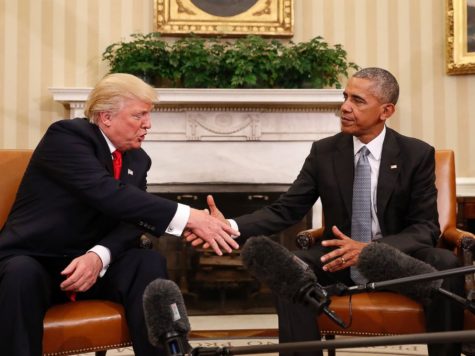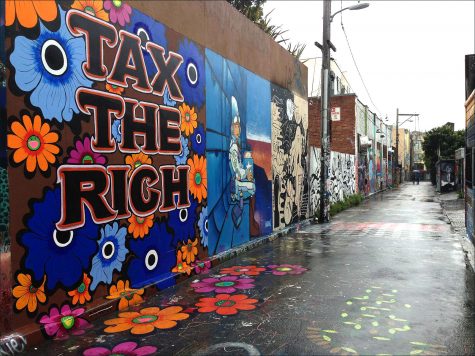Different Religions, Same Values
“And live Jesus in our hearts.” I looked around the room, dumbfounded. Then adding to my confusion, the rest of the freshman class recited, “Forever.” Coming from a Jewish middle school, hearing this foreign saying was most alarming. All I had ever known about Jesus was that he was Jewish. It struck me at that moment that the focus of Christianity is their divine savior, Jesus Christ.
Both Jewish and Catholic religions share the Old Testament. However, in Christianity, after the Old Testament came the New Testament, and in Judaism, there was no New Testament. Instead, there was the Talmud, a book written by Jewish scholars debating the Old Testament. This highlights a critical difference between the two religions. Some Catholics approach the bible with a literal interpretation, while many Jews take what the bible says and subject it to interpretation. For instance, the nomad life and the persecution that the Jewish people have experienced throughout history have created a culture of tolerance and acceptance, even if some of the Jewish laws in the Torah contradict this type of culture.
Although there are differences between Catholicism and Judaism, they share similar values. Faith, integrity, hope, service, action, thought, and kindness. If someone looked at this list of words would he or she be able to tell which ones are the foundations of a Catholic school versus a Jewish school? The answer is most likely no. The basis of both religions is to come together and give back as community in order to make positive changes in the world.
All my life I have been raised Jewish. I had a Bat Mitzvah when I was 13 and lit the candles for Shabbat dinner every Friday night. From second to eighth grade, I attended a Jewish school called Brandeis Hillel Day School. Not only was I taught Hebrew, but I were also taught the values of being Jewish. I was taught the importance of having a strong sense of identity, treating everyone equally, and living out the phrase “tikkun olam,” which means, “repairing the world.” Throughout my seven years at Brandeis Hillel Day School, I learned the significance of a good debate, community, and like Rabbi Joshua Loth Liebman said, “achieving inner health through forgiveness of not only others, but ourselves as well.”
To my family’s surprise, I chose to attend Sacred Heart Cathedral, which we had perceived to be a contradiction to my religious upbringing. Coming from Brandeis, where there were mezuzahs in every doorway, and Hebrew was spoken everywhere I went, SHC was a tremendous change for me. Jacob Moskowitz, a Jewish friend who attends SHC as well, said, “Sometimes being asked to lead a prayer for a religion I don’t practice can be uncomfortable.” I agree. When I was first asked to lead a prayer, I felt lost. Saying the words the teacher was telling me to say felt unnatural. Seeing mini statues of Jesus in classrooms and praying to saints was foreign to me.
After spending almost two years at SHC, I have noticed that the values I learned at Brandeis are similar to the ones taught at SHC. However, the driving force of these values in the Jewish religion is to be a good person while here on earth. From what I have learned in my Church History class, Catholics work as hard as they can to improve the world in order to be received by God into heaven. Although the reasoning behind doing good for the world is different in Catholicism and Judaism, the ultimate goal of both religions are to help make the world a better place.
Having the experience of attending both a Jewish and a Catholic school has allowed me to understand the world from various viewpoints. Being able to grasp the reasons why Catholics take certain actions has allowed me to be a more open- minded individual. This experience has had a positive effect on my life, and I believe it will help me to be a more empathetic and compassionate person as I move forward.









